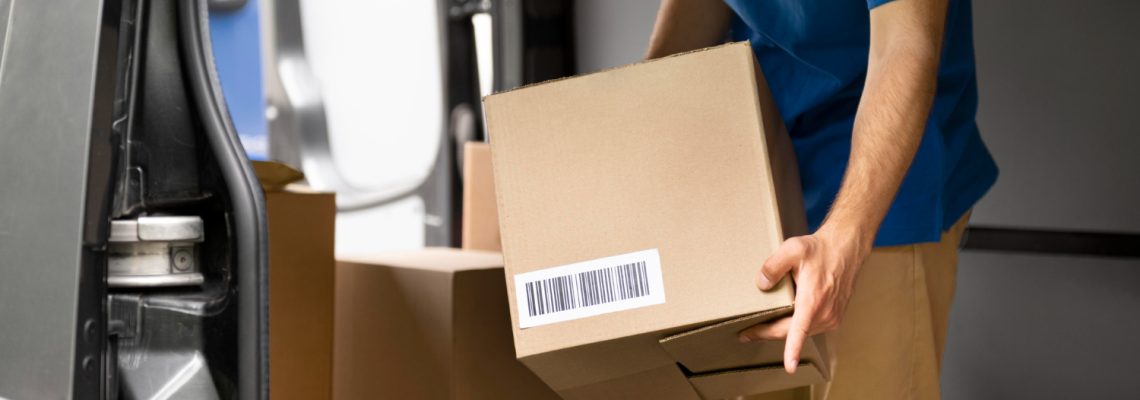Looking to start a courier business? Congratulations on taking the first step towards becoming an entrepreneur in the fast-paced world of logistics! With e-commerce on the rise and an increasing demand for speedy and reliable delivery services, there has never been a better time to start your own courier business.
As a courier business owner, you will be in the unique position to provide a valuable service to individuals and businesses alike, helping them to transport goods and documents from one location to another with speed and efficiency. And with a strong focus on sales and marketing, you can quickly establish yourself as a go-to provider in your local area.
At the heart of any successful courier business is a commitment to exceptional customer service. By delivering on time, providing clear communication throughout the delivery process, and offering competitive pricing, you can build a loyal customer base that will turn to you time and time again for all their delivery needs.
But how do you get started? With the right sales and marketing strategy, you can quickly establish your brand and attract new customers. Whether it’s through targeted advertising, networking with local businesses, or leveraging social media, there are countless ways to get the word out about your courier business and start driving sales.
So why wait? Take the first step towards starting your own courier business today and start building a successful enterprise that will deliver results for years to come.
Main Reasons to Start a Courier Business
Here are some of the main reasons to start a courier business:
High demand
With the rise of e-commerce and online shopping, there is a growing need for fast and reliable delivery services.
Low startup costs
Compared to other types of businesses, starting a courier business can be relatively inexpensive, particularly if you already own a vehicle.
Flexibility
As the owner of a courier business, you can set your own hours and work as much or as little as you like.
Scalability
With the right strategy and resources, you can quickly grow your courier business and expand your customer base.
Variety of services
As a courier business owner, you can offer a variety of services, including same-day delivery, next-day delivery, and international shipping.
Opportunity for innovation
With technology evolving at a rapid pace, there are always new opportunities for innovation in the courier industry, from using drones for delivery to developing new tracking and logistics systems.
Personal fulfillment
Many people find that running their own business is personally fulfilling and offers a sense of pride and accomplishment. As a courier business owner, you will be providing a valuable service to your customers and contributing to the local economy.
Step-by-step Guide on How to Start a Courier Business
Starting a courier business can be a great way to break into the delivery industry and capitalize on the growing demand for package delivery services. However, it’s important to plan carefully and take the necessary steps to ensure your business is successful. In this step-by-step guide, we’ll walk you through everything you need to know to start your own courier business, from developing a business plan to acquiring necessary licenses and insurance, and building a customer base.
Conduct market research
Conducting market research is a critical step in starting a courier business. It helps you understand the demand for delivery services in your area and identify potential opportunities to differentiate your business from competitors. Here are some steps to consider when conducting market research:
Define Your Target Market
Identify your target market and their delivery needs. Consider factors such as age, location, income, and industry. Determine the types of packages or goods they need to be delivered, the delivery timeframe required, and their delivery preferences.
Assess the Competition
Research other courier businesses in your area to assess the competition. Look for gaps in the market that your business can fill, such as offering delivery options that your competitors do not provide.
Some major courier companies to review include:
Analyze Industry Trends
Stay up-to-date with industry trends and changes in the market. This can help you identify new opportunities and adjust your business model to meet the evolving needs of your customers.
Determine Pricing Strategy
Determine your pricing strategy based on the services you offer, the demand for delivery services in your area, and your competition. Consider offering competitive pricing or additional services that your competitors do not offer to attract customers.
Evaluate Marketing Channels
Evaluate the most effective marketing channels to reach your target market. This can include social media, online advertising, direct mail, and networking events.
By conducting thorough market research, you can gain insights into your target market, assess the competition, and identify potential opportunities for your courier business. This will help you create a unique selling proposition that differentiates your business from competitors and attract customers to your services.
Develop a business plan
Developing a comprehensive business plan is critical to the success of any courier business. Here are some key elements to consider when creating your business plan:
Executive Summary
This section should provide an overview of your courier business, including the services you plan to offer, your target market, and your goals and objectives.
Market Analysis
In this section, you should research your target market and competitors. This should include an analysis of demand for courier services in your area, as well as an assessment of your competitors’ strengths and weaknesses.
Services
Describe the types of delivery services you plan to offer, such as same-day delivery, next-day delivery, and international shipping. Consider offering additional services like package tracking and notifications to help differentiate your business from competitors.
Marketing Strategy
Your marketing strategy should outline how you plan to promote your courier business to potential customers. Consider using a variety of marketing channels, such as online advertising, social media, and targeted mail campaigns.
Pricing
Determine your pricing structure based on the distance of the delivery, the weight of the package, and any additional services you may offer. Research competitors’ pricing to ensure that your prices are competitive.
Operations
In this section, outline the processes and procedures you will use to handle and deliver packages. This should include information on how you will receive orders, assign deliveries to drivers, track packages, and communicate with customers.
Financial Projections
This section should include financial projections for the first few years of your business. Include your expected revenue, expenses, and profits. You may also want to include a break-even analysis to determine how many deliveries you need to make to cover your costs.
Once you have created your business plan, use it as a roadmap for launching and growing your courier business. It will help you stay focused on your goals and objectives, and will be an important tool for securing funding if you need it.
Choose a business name and register your business
Choose a name that reflects your brand and is easy to remember. Register your business with your state or local government and obtain any necessary licenses or permits.
Choose a business name
Choose a name that reflects your brand and is easy for customers to remember. Consider names that are catchy and memorable, while also conveying the nature of your courier business.
Conduct a name search
Before you finalise your business name, conduct a search to ensure it’s not already in use by another courier business or trademarked by another company. This can help you avoid potential legal issues down the line.
Register your business
Register your courier business with your state or local government. This process may involve filing paperwork and paying registration fees. The specifics of this process will depend on the laws and regulations in your area.
- Relevant laws, licences and other important topics about a courier business in Australia https://business.gov.au/planning/industry-information/transport-postal-and-warehousing-industry
Obtain necessary licenses and permits
Depending on your location and the nature of your courier business, you may need to obtain licenses or permits to operate legally. This may include a business license, a commercial driver’s license, or permits for specific types of deliveries (e.g., hazardous materials).
Consider trademarking your business name
If you want to protect your business name and brand, consider applying for a trademark with IP Australia. This can give you legal protection and prevent other businesses from using your name or branding.
Build a website and online presence
In today’s digital age, having a website and online presence can be critical for attracting customers and building your brand. Consider building a website that showcases your services and includes customer testimonials and contact information.
Advertise your services
To attract customers and build your business, you’ll need to advertise your courier services. Consider using online advertising platforms, social media, or traditional advertising methods like flyers and print ads.
By following these steps, you can choose a memorable business name and register your courier business with the necessary licenses and permits. This will help you operate legally and build a solid foundation for your business
Acquire equipment
Acquiring equipment is a critical step in starting a courier business. The most important piece of equipment you will need is a reliable vehicle for making deliveries. Here are some things to consider when acquiring a vehicle for your courier business:
Choose the Right Type of Vehicle
Depending on the size and weight of the packages you plan to deliver, you may need a larger vehicle, such as a van or truck. Consider the type of deliveries you will be making and choose a vehicle that can handle the volume and weight of packages.
Decide Whether to Buy or Lease
Decide whether to buy or lease your vehicle. Leasing may be a more cost-effective option for newer vehicles, as it allows you to pay a lower monthly fee and avoid the high upfront costs of purchasing a new vehicle. However, purchasing a vehicle outright can be a good option if you have the capital and plan to use the vehicle for an extended period of time.
Consider Fuel Efficiency
Consider the fuel efficiency of the vehicle you choose. Fuel costs can be a significant expense for courier businesses, so choosing a vehicle with good fuel efficiency can help keep costs down.
Purchase Insurance
Make sure to purchase commercial insurance for your vehicle. This will protect you in the event of an accident or theft and ensure that your business is compliant with state and local regulations.
Maintain Your Vehicle
Regularly maintain and service your vehicle to ensure it remains reliable and safe for making deliveries. This includes regular oil changes, tire rotations, and other routine maintenance tasks.
Acquiring a reliable vehicle is essential to the success of your courier business. By choosing the right type of vehicle, deciding whether to buy or lease, considering fuel efficiency, purchasing insurance, and maintaining your vehicle, you can ensure that your deliveries are made safely and efficiently.
Obtain insurance
Obtaining insurance is an essential step in starting a courier business. Insurance protects your business from liability and damages and helps you comply with state and local regulations. Here are some types of insurance to consider for your courier business:
Liability Insurance
Liability insurance protects your business from third-party claims for bodily injury or property damage. It covers legal fees and settlement costs if your business is found liable for an accident or injury.
Vehicle Insurance
Vehicle insurance is required for any vehicles used in your courier business. It covers damages to your vehicle and other vehicles involved in an accident, as well as injuries to passengers or pedestrians.
Workers’ Compensation Insurance
If you plan to hire employees, you will need workers’ compensation insurance. This insurance covers medical expenses and lost wages for employees who are injured on the job.
Cargo Insurance
Cargo insurance covers the loss or damage of goods in transit. If you plan to transport valuable or fragile items, such as electronics or artwork, cargo insurance can provide added protection.
Business Interruption Insurance
Business interruption insurance covers lost income and expenses if your business is unable to operate due to a covered event, such as a natural disaster or power outage.
When obtaining insurance for your courier business, it’s important to work with a reputable insurance provider and carefully review the coverage options and premiums. By having the appropriate insurance coverage in place, you can protect your business and provide peace of mind to your customers.
Set up your operations
Setting up your operations is a critical step in starting a courier business. Establishing efficient procedures for accepting and tracking deliveries, communicating with customers, and tracking packages can help ensure that your business runs smoothly and provides excellent customer service. Here are some things to consider when setting up your operations:
Develop Procedures
Develop standard operating procedures for accepting and tracking deliveries. This includes establishing a system for accepting orders, tracking packages, and communicating with customers. You may also want to establish procedures for handling returns and dealing with customer complaints.
Invest in Technology
Consider investing in software to help you track and optimize delivery routes. This can help you save time and fuel costs by providing the most efficient route for each delivery.
Hire and Train Employees
If you plan to hire employees, it’s important to train them on your operating procedures and provide ongoing training to ensure they are delivering packages safely and efficiently.
Establish Safety Protocols
Establish safety protocols for your operations to ensure the safety of your employees and customers. This includes ensuring that vehicles are well-maintained, providing safety equipment, and training employees on safe driving practices.
Ensure Compliance
Make sure your business is compliant with state and local regulations regarding the transportation of goods. This includes obtaining any necessary permits or licenses and complying with safety regulations.
By setting up efficient operations, investing in technology, hiring and training employees, establishing safety protocols, and ensuring compliance with regulations, you can ensure that your courier business provides excellent service and operates safely and efficiently.
Hire employees or independent contractors
If your courier business grows, you may need to hire employees or independent contractors to help you manage your operations and make deliveries. Here are some things to consider when deciding whether to hire employees or independent contractors:
Employee or Contractor
Determine whether you want to hire employees or independent contractors. Employees work directly for your business and are subject to your control and direction. Independent contractors are self-employed and work for themselves, but provide services to your business under a contract.
Hiring Employees
If you decide to hire employees, you will need to comply with labor laws, provide workers’ compensation insurance, and deduct taxes from their paychecks. Hiring employees gives you more control over their work and allows you to train them to work according to your procedures.
Hiring Independent Contractors
Hiring independent contractors may be more cost-effective and give you more flexibility, but you have less control over their work. Independent contractors are responsible for their own taxes and insurance, but you are still responsible for ensuring that they comply with any regulations and deliver packages safely and efficiently.
Screening Candidates
Regardless of whether you choose to hire employees or independent contractors, it’s important to screen candidates carefully to ensure they are qualified and trustworthy. Conduct background checks, verify their driving records, and check references to ensure they have the necessary skills and experience to perform the job.
Training
Once you have hired employees or independent contractors, provide them with training on your procedures and safety protocols. This can help ensure that deliveries are made safely and efficiently.
Whether you choose to hire employees or independent contractors, it’s important to ensure that they are qualified, trained, and comply with all regulations and safety protocols. By hiring the right people and providing them with the necessary training and support, you can build a successful courier business.
Market your business
Marketing is crucial to the success of any business, including a courier business.
Here are some steps to follow when marketing your courier business:
- Develop a business plan
- Build a website
- Use social media
- Advertise in local media
- Network with local businesses
- Offer promotions and discounts
- Measure your results
Develop a marketing plan
Start by developing a marketing plan that outlines your target market, marketing goals, and the strategies you will use to reach your audience. This plan should include a budget for advertising and other marketing expenses.
Build a website
A business website is a powerful tool for promoting your courier business. It allows you to showcase your services, prices, and customer reviews. Make sure your website is easy to navigate, mobile-friendly, and includes a clear call-to-action.
Use social media
Social media platforms such as Facebook, Instagram, and Twitter are great for promoting your courier business. Share engaging content such as photos and videos of your deliveries, customer testimonials, and promotions. Use hashtags to make it easier for potential customers to find your business.
Advertise in local media
Advertising in local newspapers, magazines, and radio can help you reach a wider audience. Consider offering special deals or promotions to attract new customers.
Network with local businesses
Partnering with local businesses can help you increase your visibility and attract new customers. Attend local business events, join business associations, and offer to provide delivery services to nearby businesses.
Offer promotions and discounts
Offering promotions and discounts to new customers can help you attract and retain clients. Consider offering a discount for first-time customers or a referral program that rewards customers for referring new business to your courier service.
Measure your results
It’s important to track the success of your marketing efforts. Use tools like Google Analytics to track website traffic, monitor social media engagement, and track the success of your advertising campaigns.
By following these steps, you can develop a marketing strategy that promotes your courier business and attracts new customers. Be creative, stay engaged with your audience, and be willing to adjust your strategy as needed to ensure long-term success.
Set your pricing
Setting the right pricing structure is crucial for the success of any courier business.
Here are some factors to consider when determining your pricing:
- Distance
- Weight
- Speed
- Additional services
- Competition
- Cost of operations
Distance
The distance of the delivery is a key factor to consider when setting your pricing. Generally, longer distances will require higher prices. You may want to offer tiered pricing based on the distance of the delivery, with higher prices for longer distances.
Weight
The weight of the package is another important factor to consider. Heavier packages will require more resources and time to deliver, so you may want to charge more for heavier packages.
Speed
If you offer same-day or rush delivery services, you may want to charge higher prices for these services. Customers who need their packages delivered quickly are often willing to pay a premium for this convenience.
Additional services
You may also want to charge extra for additional services such as weekend delivery, after-hours delivery, or package tracking.
Competition
You should also research the pricing of other courier services in your area to ensure that your pricing is competitive. If your prices are significantly higher than your competitors, it may be difficult to attract and retain customers.
Cost of operations
Finally, you should also consider the cost of running your courier business when setting your pricing. This includes the cost of gas, vehicle maintenance, insurance, and employee salaries.
Once you have considered these factors, you can determine your pricing structure. You may want to offer a base rate for delivery services, with additional charges for distance, weight, speed, and additional services. Be transparent about your pricing and make sure your customers understand the charges before they book a delivery with your courier business.
Launch your business
Launching your courier business is an exciting and important step in your entrepreneurial journey.
Here are some tips to help you get started:
- Plan your launch
- Make deliveries
- Monitor your progress
- Build your reputation
- Expand your services
Plan Your Launch
Plan your launch carefully to ensure a successful start. Set a launch date and create a marketing plan to promote your business to potential customers. Consider offering a promotion or discount to attract new customers and generate interest in your services.
Make Deliveries
Once you have launched your business, start making deliveries! Ensure that you provide excellent customer service, timely delivery, and clear communication with your customers. Consider tracking your deliveries to ensure that packages are delivered on time and to the correct location.
Monitor Your Progress
As you make deliveries, monitor your progress and adjust your operations and marketing strategies as needed. Consider tracking your revenue, expenses, and profits to ensure that you are on track to meet your financial goals.
Build Your Reputation
Building a strong reputation is essential to the success of your courier business. Encourage customers to leave reviews and testimonials, and respond to any feedback in a timely and professional manner. Consider offering exceptional service, timely delivery, and transparent communication to build a loyal customer base.
Expand Your Services
As your business grows, consider expanding your services to meet the needs of your customers. This may include offering new delivery options, expanding your delivery area, or providing additional services like package tracking or rush delivery.
Launching your courier business requires careful planning, hard work, and a willingness to adjust your operations and marketing strategies as needed. By providing excellent service, building a strong reputation, and expanding your services, you can grow your business and achieve success in the competitive courier industry.
Investment Required in Starting a Courier Business
Starting a courier business requires some upfront investment.
Here are some of the expenses you can expect to incur:
- Delivery vehicle
- Insurance
- Equipment & Technology
- Licenses & Permits
- Marketing
- Employee Salaries
- Office space / Warehouse & Utilities
Vehicle
A reliable vehicle is essential for making deliveries. Depending on your budget and the size of your business, you may need to purchase or lease a van or truck. If you choose to purchase a vehicle, you can expect to spend anywhere from a few thousand dollars to tens of thousands of dollars, depending on the make, model, and age of the vehicle.
Insurance
To protect your business from liability and damages, you will need to purchase insurance. You will need to purchase liability insurance, vehicle insurance, and workers’ compensation insurance if you plan to hire employees. The cost of insurance will vary depending on your location, the size of your business, and other factors.
Equipment and technology
You may need to purchase equipment such as GPS devices, scanners, and printers to track and manage your deliveries. You may also need to purchase software to optimize delivery routes and manage customer orders. The cost of equipment and technology will depend on the specific tools and software you choose.
Licenses and permits
You will need to obtain any necessary licenses and permits to operate your courier business legally. The cost of licenses and permits will vary depending on your location and the type of business you are operating.
Marketing
To promote your courier business, you may need to invest in marketing and advertising. This can include printing business cards and brochures, running ads on social media or in local newspapers, and attending networking events. The cost of marketing will depend on your specific strategy and budget.
Employee salaries
If you plan to hire employees to help with deliveries, you will need to budget for their salaries and benefits. The cost of employee salaries will depend on the number of employees you hire and the average wage in your area.
Office space and utilities
If you need to rent office space for your courier business, you will need to factor in the cost of rent and utilities such as electricity and internet. The cost of office space and utilities will depend on the size and location of the space you choose.
Overall, the cost of starting a courier business can vary widely depending on your specific needs and circumstances. You should conduct a thorough analysis of your expenses and revenue potential before launching your business to ensure that you have the financial resources to get started and sustain your business over the long term.
Courier business related articles

How Profitable is a Courier Business in Australia
Courier services have been in high demand in recent years, with the growth of e-commerce and online shopping. In Australia, the courier industry is expected

Top Marketing Strategies for your Courier Business
As the courier industry becomes increasingly competitive, it’s important to have effective marketing strategies in place to attract and retain customers. In this article, we’ll

How to Hire Employees for Your Courier Business in Australia
As your start-up courier business grows, you may find that you need to hire additional employees to keep up with demand. However, hiring the right

Legal Requirements Needed for a Courier Business in Australia
Starting a courier business in Australia requires careful attention to legal requirements and regulations. Understanding and complying with these requirements is essential to ensure the

Software Needed for a Courier Business
As technology continues to evolve, more and more businesses are relying on software solutions to streamline their operations and improve their efficiency. This is especially

